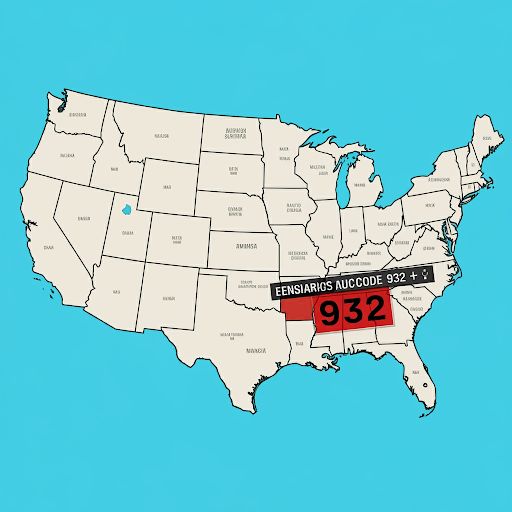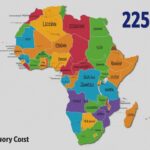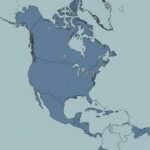The 932 area code is not currently an assigned or active geographic area code within the North American Numbering Plan (NANP), which covers the United States, Canada, and several Caribbean countries. It is a reserved code block with no official city or state tied to it.
Therefore, if you receive a call from a number that appears to begin with the 932 area code (i.e., 1-932-XXX-XXXX), it is almost always an instance of Caller ID Spoofing—a fraudulent tactic used by scammers to trick you into answering the phone.
This guide provides the definitive status of the 932 area code, clarifies where the 932 prefix is sometimes used legitimately, and offers actionable steps to protect yourself from associated phone fraud.

The Official Status of Area Code 932
The 932 area code is currently reserved by the North American Numbering Plan Administrator (NANPA) for future use. It is not currently active for public telephone line assignment.
| Detail | Status |
| Geographic Location | None (Unassigned/Reserved) |
| Country | Not currently in use in the U.S., Canada, or the Caribbean. |
| Time Zone | N/A (Not tied to a location) |
| Call Risk | High Risk of fraudulent Caller ID Spoofing. |
Note on the “932” Prefix
While 932 is not an area code, the sequence -932- is legitimately used as an exchange prefix (the three digits that follow the area code) within certain assigned area codes. For example:
- Numbers starting with 203-932-XXXX are legitimate lines in the Connecticut area (West Haven).
- Numbers starting with 813-932-XXXX are legitimate lines in the Florida area (Tampa/Carrollwood).
If the 932 appears as the NPA (the first three digits after the “1”), the call is invalid.
High Risk: Caller ID Spoofing and Fraud
The biggest risk associated with the 932 area code is that criminals use it to deceive call recipients.
Why Scammers Use Unassigned Codes
Scammers prioritize unassigned codes like 932 for several reasons:
- Evading Spam Filters: Because the code is not assigned, it sometimes bypasses call-blocking apps and carrier filters that track patterns in known active spam numbers.
- Disguising Origin: The call’s true origin (which may be a foreign country or a call center thousands of miles away) is masked, preventing immediate tracing.
- Curiosity: An unfamiliar but structured three-digit code often piques curiosity, increasing the chance the recipient will answer or call back.
Actionable Steps for Safety
If your phone rings and displays a number beginning with 1-932-XXX-XXXX, follow these protective steps:
- Do Not Answer: Never pick up calls from numbers you do not recognize, especially one with an unassigned area code. Answering confirms your number is active.
- Do Not Call Back: Do not return the call. There is no legitimate party waiting on the other end, and calling back may connect you to a premium-rate service.
- Block the Number: Immediately use your mobile phone’s built-in feature to block the incoming number.
- Verify Legitimacy: If you receive a voicemail claiming to be from a financial institution or government agency, do not trust the callback number provided. Instead, look up the official contact number for that organization on its secure website and call them directly.
Frequently Asked Questions
Will the 932 area code ever be assigned to a city?
Yes, eventually. As the demand for new phone numbers continues to grow, the NANPA will introduce reserved area codes like 932, likely as an overlay to an existing high-demand geographic region. However, this process takes years and will be publicly announced before any numbers are released.
I saw a number that was (203) 932-XXXX. Is that a scam?
No. That number is likely legitimate. The 203 is the valid area code for Connecticut, and 932 is a valid central office prefix within that area code. The high-risk warning only applies when 932 is used as the Area Code itself.
Should I report calls from the 932 area code?
Yes. You should report the number to your mobile service provider and file a complaint with the Federal Trade Commission (FTC) at ReportFraud.ftc.gov. Every report helps authorities track down and shut down illegal robocall operations.
Conclusion
The 932 area code is an unassigned code used by fraudulent spammers for Caller ID Spoofing. No consumer or business in North America should have a phone number beginning with 932. To protect yourself and your finances, the best advice is to ignore, block, and report any calls you receive from the 932 area code.


